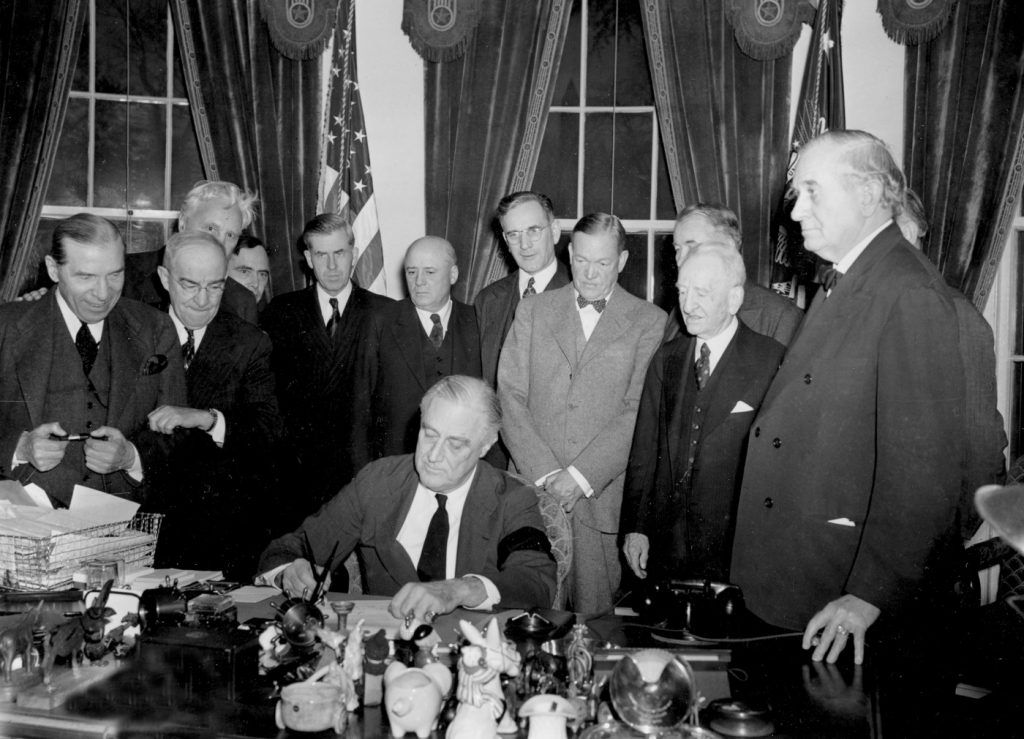Kamala Harris and Donald Trump don’t agree on much. But there is one thing on which both major party nominees do agree.
“I do believe this is the most existential, consequential and important election of our lifetime,” Harris told her Alpha Kappa Alpha sorority sisters last summer. “This will be the most important election in the history of our country,” Trump told his allies in the Faith and Freedom Coalition.
While that is often said, it certainly could be true this time. A Harris victory could end Trump’s recent domination of American politics and likely unleash turmoil within in the Republican Party. A Trump victory could signal dramatic changes in both policy and the way the United States is governed.
But only next month’s results — and their long-term impact — will determine if 2024 takes its place among the most impactful American presidential elections. There are many lists, and at least a dozen past contests could qualify in one way or another.
Here are the six with the greatest impact:
1789 – The nation’s first election. It was crucial that the new republic’s most respected leader, General George Washington, became its first president. In his two terms, he established both the extent of the president’s authority and some limits. And before passing the office on to his fellow Federalist, John Adams, he warned in his farewell address against “the baneful effects of the spirit of party” and called on the new nation to resist the “insidious wiles of foreign influence” and “steer clear of permanent alliances with any portion of the foreign world.”
1800 – The first peaceful presidential transition. The party differences against which Washington warned soon surfaced, and, after a contentious 1800 campaign, Democratic-Republican candidate Thomas Jefferson unseated Adams. But a flaw in the original Electoral College setup created a tie between Jefferson and his running mate, Aaron Burr. It was settled by the House of Representatives and led to enactment of the 12th Amendment that called for electors to vote separately for presidents and vice presidents. Adams left town in the early morning before Jefferson’s inauguration, but the transfer of power proceeded without incident.
1828 – The first truly “democratic” election. After a deal between John Quincy Adams and Henry Clay counted Andrew Jackson out in 1824, the hero of the War of 1812 resumed campaigning. In 1828, he reversed the result by beating Adams in the first election in which the popular vote was dominant. It was also the election in which an “outsider” — Jackson was from Tennessee — ended the political domination of the republic’s East Coast founders.
1860 – The election that unleashed the Civil War and, after four bitter years, ended slavery in the American South. The forces that led to the war had been building for years as lawmakers clashed over whether to allow or ban slavery in newly admitted states. The election of Abraham Lincoln, a former one-term Illinois congressman, brought Republicans to power for the first time and led to the secession starting even before his inauguration of 11 slave-holding Southern states. After a bitter and bloody struggle, the central government prevailed and Lincoln freed the enslaved people, but he was assassinated a month after starting his second term.
1876 – The disputed election that was settled with a deal ending the post-Civil War “Reconstruction Era” in the South, leading to new restrictions on its formerly enslaved Black citizens. Amid disputed results in three Southern states, a commission created by Congress awarded Republican Rutherford Hayes the presidency over Democrat Samuel Tilden. As part of the deal, Democrats achieved their goal of having U.S. troops withdrawn from the states of the former Confederacy. Without the federal presence, white Democratic majorities regained political control and enacted laws that disenfranchised Black Americans and established the racial segregation that lasted until the civil rights revolution 80 years later.
1932 – The election that preserved democracy at home and led to an expanded U.S. role abroad. Elected president at the depth of a global economic depression, Democrat Franklin D. Roosevelt restored public confidence, stabilized the financial system and gained congressional approval of far-ranging measures that enhanced federal authority and gradually revived the economy. Sympathetic to European democracies opposing Germany’s Adolf Hitler, Roosevelt slowly re-entered the world stage, until the 1941 Japanese attack on Pearl Harbor and subsequent German declaration of war brought the United States into World War II. Over the next four years, its manpower and industrial might enabled the forces of democracy to end the threat of German Nazism in Europe and Japanese imperialism in the Pacific.
Some other elections had significant consequences.
Republican William McKinley’s 1896 election saw the industrial establishment repel the challenge of economic populism. Democrat Woodrow Wilson’s election in 1912 led to the first major expansion of federal power. Republican Dwight Eisenhower’s election in 1952 resulted in GOP acquiescence in the New Deal’s expansion of federal authority. In 1960, Democrat John F. Kennedy won the election in which television superseded the printed word as the dominant influence. Republican Ronald Reagan’s 1980 victory signaled a reversal of the growing accumulation of federal power. And Trump’s unexpected 2016 victory was a defeat for the political establishments of both parties and created a contentious new political era.
Whatever the outcome, 2024 could well join that list. But the extent of its ultimate impact will depend not only on what happens on Nov. 5, 2024, but after Jan. 20, 2025.
Carl P. Leubsdorf is the former Washington bureau chief of The Dallas Morning News. ©2024 The Dallas Morning News. Distributed by Tribune Content Agency.


